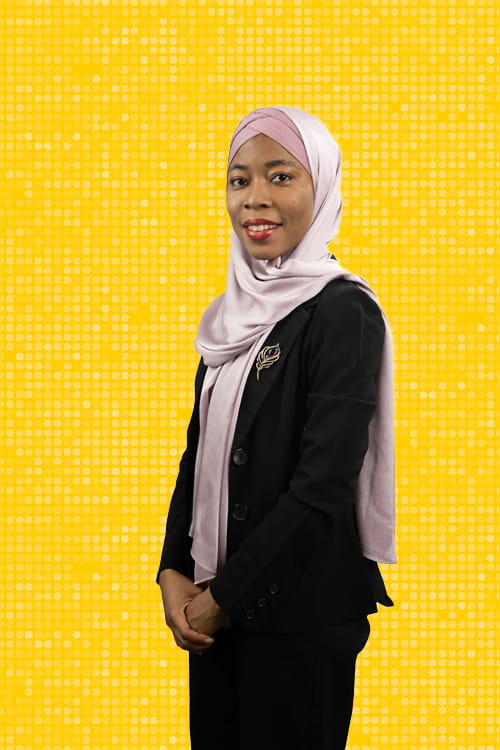
Abimbola Oladayo, PhD student, oral science
Examines gene research in Africa
“Abimbola is a board-certified Public Health expert with a BDS in Dentistry, MPH, MSc in Dental Public Health and certificate in Biostatistics… She is an emerging leader in the ethico, legal and social issues of craniofacial anomalies and genetics and has been invited to present at National and International meetings. ” – Azeez Butali, professor
Hometown: Ibadan, Nigeria
Faculty mentor/advisor: Azeez Butali, PhD, professor of oral pathology, radiology and medicine, College of Dentistry
What is your degree program and anticipated graduation date? PhD in oral science; May 2024
Please describe your research: My research focuses on the “Ethical, Legal and Social Implications (ELSI) of genetics and genomics research in African populations in the context of orofacial clefts”. This involves examining issues concerning the access to genetic and genomic services, utilization, and the perception of diverse communities on genetics and genomics information.
In simple terms, why does this research matter? In the wake of increasing diversity in genomics research, several efforts are ongoing to enhance the representation of research participants in this field. These include understanding the effects of genomic diversity on disease risk, tailoring genomic medicine for underrepresented populations and the impact of genomics research in diverse populations. My dissertation seeks to provide a unique perspective into exploring diversity in genetic and genomics research in minority populations by examining the perspective and needs of the major stakeholders involved in care delivery, identify the knowledge gaps, and develop interventions which will facilitate the incorporation of genomic medicine into their practice. This is crucial for the African population, who are underrepresented in genomic research despite the genetic diversity in this population if we are to attain equal access to precision medicine and diversity of the genomic workforce.
How soon after starting at the University of Iowa were you able to participate in research? I had the opportunity to join lab meetings before coming to Iowa, this gave me a head start on the lab projects, particularly my research. As such, I was able to hit the ground running following the commencement of my PhD.
How has being involved in research made you more successful at the University of Iowa? My engagement with ELSI research at the Butali Lab over the course of my study has been a transformative experience. It has been an intellectually rewarding process that has helped me foster a sense of independence and contribute to the expansion in the frontiers of knowledge in ELSI research in minority populations. Overall, I have been able gain transferrable critical thinking and problem-solving skills that have been beneficial to the other aspects of coursework and studies at the University of Iowa.
What are your career goals and/or plans after graduation? A healthcare and research workforce that employs the full power of diversity to unravel research problems aiming to tackle the needs of underrepresented racial and ethnic minorities is an essential component of reducing and eliminating existing health inequities. My goal is to be an independent oral health and ELSI researcher who will contribute to the diversity of the oral and biomedical research field and improve the practice of genetics and genomics research and medicine in resource-limited settings via the engagement of essential stakeholders (patients, providers, and the community gatekeepers).
Banner location: Downtown—
